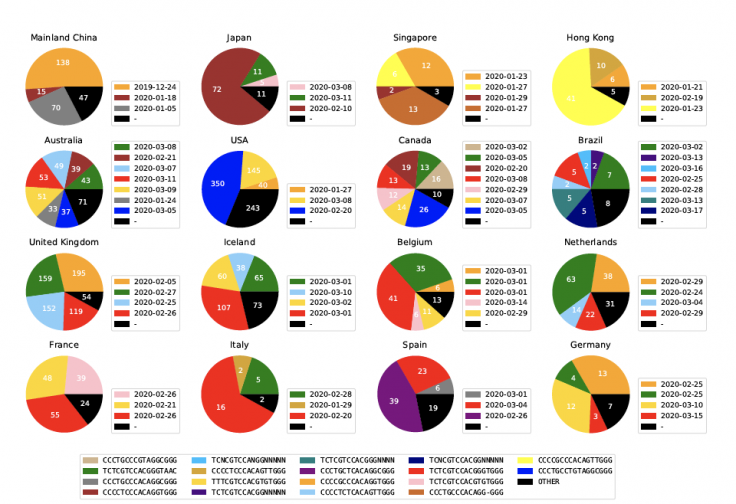Drexel University scientists have developed a tool helping in tracking the spread of novel coronavirus by identifying and labelling virus mutations. They also found that two parts of the virus are not mutating and must be responsible for the damage.
The tool is made publicly available for researchers on GitHub. This tool would help medical and officials to track and contain the coronavirus and in reviewing the physical distancing measures, the researchers believe, says the University report.
A preliminary analysis using the tool suggested that there were at least six to 10 different versions of SARS-CoV-2 in America. However, the difference is slight. The data was from a global genetic information database. The tool could be potential in developing vaccines and treatments for COVID-19. The research paper is published in the preprint server, bioRxiv.
What are mutations?

Any virus has a genetic code which changes slightly/mutates as and when the virus spreads from person to person. The process to study and identify these mutations is much time-consuming. This research by Drexel University is expected to quicken the process.
The types of coronaviruses seen in tests from Asia and Europe were different than those types seen in America, said Gail Rosen, a professor in Drexel's College of Engineering,
Like a barcode

"It's the equivalent of scanning a barcode instead of typing in the full product code number," said Rosen. In analyzing the virus mutations, supposing a subtype of the mutated virus is only seen in a certain region and not outside would mean that social distancing measures are effective in the region and working.
Such continuous tracking of mutations can also suggest treatments for it. It was previously reported that the flu virus mutates faster than the novel coronavirus, thus there would be a need for an altered vaccine to the mutated flu virus every year.
Not to worry for vaccine
In the case of the COVID-19 causing virus, the team's analysis says it seems that there needs to be no worry with respect to COVID-19 vaccine. The researchers saw that two parts of this coronavirus are not mutating and must be the ones responsible for entering healthy cells to replicate itself. This proves important targets in understanding the immune system's response to identify antivirals and in designing vaccines, according to Rosen.









